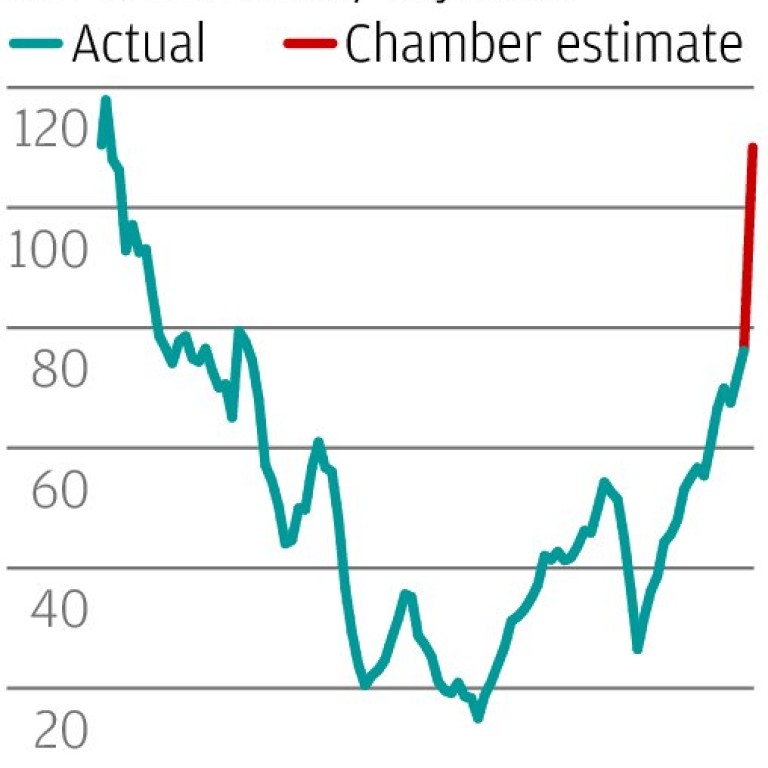
Greed, not need, drives call for more foreign workers
For starters, I have a slight quibble with the General Chamber of Commerce's numbers on unfilled job vacancies, the reason it is now calling for the doors to be opened to labour migrants.
For starters, I have a slight quibble with the General Chamber of Commerce's numbers on unfilled job vacancies, the reason it is now calling for the doors to be opened to labour migrants.

The red upwards spike on the right of the chart shows what would have had to happen to make both numbers correct. It seems unlikely to me.
It seems all the more unlikely given that the labour force rose by 30,000 people over these four months. The participation rate has surged recently.
But I think this question is best approached from a different angle. I went to see my optometrist in Melbourne House the other day and on the ground-floor lift lobby observed three men employed to stand by the lifts all day long and motion people in.
Here is my question: How does it happen that one of the world's wealthier economies - with a gross domestic product of US$38,000 per capita, about the level of the Britain's - makes such poor use of its working people?
I have never seen this sort of thing in Britain. I have, however, seen plenty of examples of it in Hong Kong. It is what I expect to see in a basket-case economy. Why does it still happen here?
I shall answer that question for you. It is because until recently, our government regularly fell over when it was pushed by employers to keep wages down by bringing in more labour migrants.
I think it is finally becoming apparent to our bureaucrats that this is the wrong way to go, that it brings ever widening income polarity to our society, that it acts as a disincentive to acquiring job skills and that it slows down our economy's progress to a higher level.
Yes, we always need to bring in certain skills, but when it means that we look to Sri Lanka first for construction crews and the Philippines for shop clerks, then perhaps we are taking things too far. What is wrong with Hong Kong's own people?
What is wrong, say employers, is that they want too much money and there are not enough of them. What is more, they won't take dirty jobs unless they are paid even more.
Exactly, and just what is wrong with that? If Hongkongers have worked to make themselves rich, why shouldn't they enjoy their riches? Why must they dilute their own incomes to suit the convenience of their employers?
I am sure it is true that wages will rise rapidly if we restrict entry to labour migrants. I think it is a good thing.
I am also sure that some businesses will find conditions too tight and shut down. That is the cost of adjustment to an equitable and wealthy society. The nature of work will change. Progress is not painless.
I do not believe, however, that rising wages will lead to widespread job losses. Labour operates in a labour market. There has always been a very close inverse relationship in Hong Kong between wage increases and unemployment.
But most of all, it is just being fair to the people of our city. Those lift attendants in Melbourne House deserve better.

